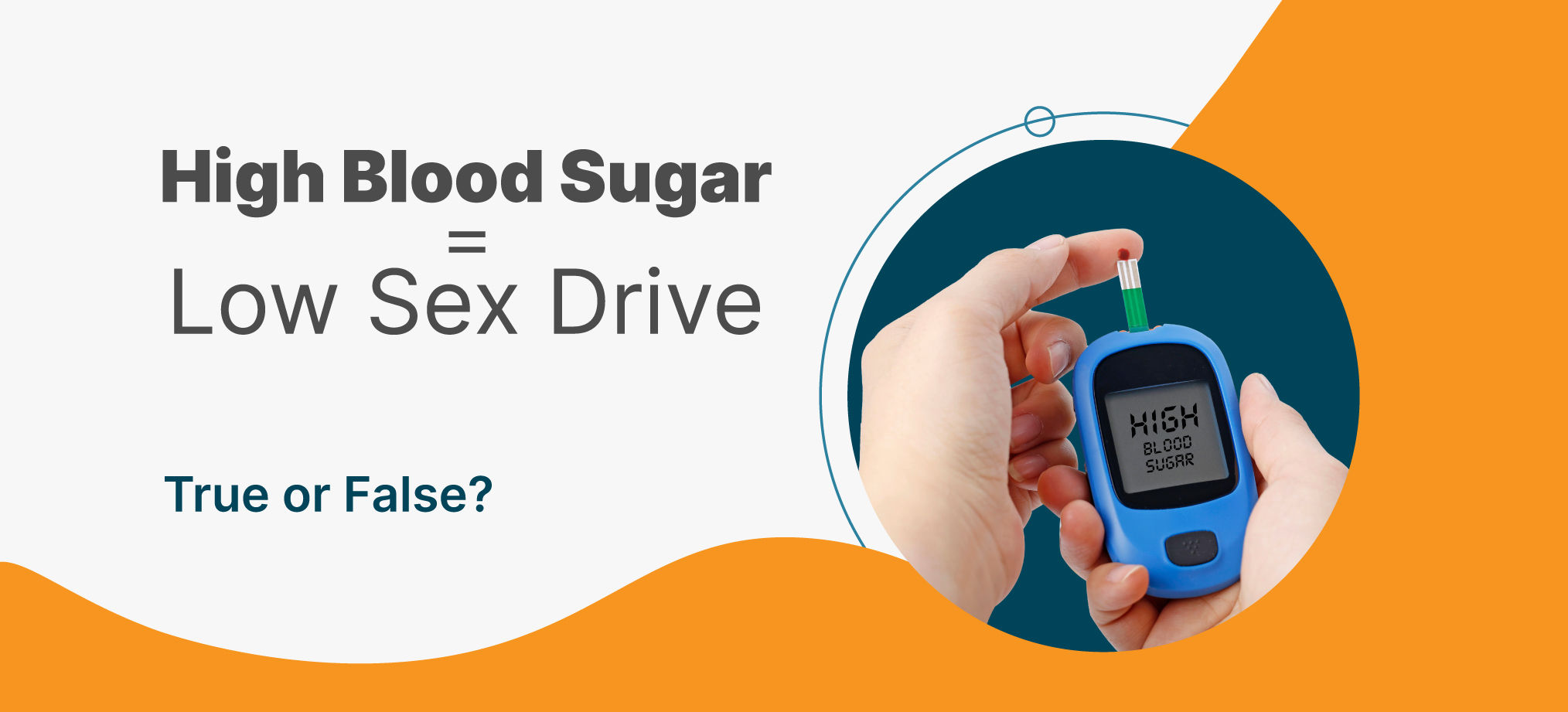Diabetes Management
How Diabetes Can Affect Your Digestive System
6 min read
By Apollo 24|7, Published on - 24 August 2023, Updated on - 22 February 2024
Share this article
0
0 like

Diabetes is a chronic condition that affects the way your body regulates blood sugar levels. While it is commonly known for its impact on blood sugar control, diabetes can also have significant effects on various other systems in the body, including the digestive system. Understanding how diabetes affects the digestive system can help individuals manage their condition effectively.
Types of Diabetes and Their Effects on the Digestive System
Let's delve into each type of diabetes and explore its effects on the digestive system.
Type 1 Diabetes
In Type 1 diabetes, the immune system mistakenly attacks and destroys the insulin-producing cells in the pancreas. This results in a lack of insulin, which is crucial for regulating blood sugar levels. It can affect the digestive system in ways including:
- Gastroparesis (delayed stomach emptying): High blood sugar levels can damage the nerves that control the stomach muscles, leading to gastroparesis. Gastroparesis can cause symptoms like bloating, nausea, vomiting, and poor appetite.
- Diabetic diarrhea: Some individuals with Type 1 diabetes may experience frequent episodes of loose stools or diarrhea due to nerve damage in the intestines.
Type 2 Diabetes
In Type 2 diabetes, the body becomes resistant to insulin or doesn't produce enough insulin to maintain normal blood sugar levels. Type 2 diabetes can affect the digestive system in several ways, including:
- Non-alcoholic fatty liver disease (NAFLD): Insulin resistance in Type 2 diabetes can lead to the accumulation of fat in the liver, resulting in NAFLD. NAFLD may cause liver inflammation, scarring, and potentially liver damage if not managed properly.
- Gallbladder problems: Type 2 diabetes is associated with an increased risk of gallbladder issues, including gallstones. High blood sugar levels and insulin resistance may contribute to the formation of gallstones.
Symptoms and Complications of Digestive Issues in Diabetes
The fluctuating blood sugar levels in diabetes can have a significant impact on the digestive system, leading to various complications.
1. Common symptoms of digestive issues in diabetes
- Abdominal pain and discomfort: Many individuals with diabetes experience abdominal pain, bloating, and cramping. These symptoms may be caused by gastroparesis, a condition where the stomach takes longer than usual to empty its contents.
- Nausea and vomiting: Gastroparesis can also cause feelings of nausea and vomiting, making it difficult to eat and maintain proper nutrition.
- Diarrhea or constipation: Diabetes can disrupt the normal functioning of the intestines, leading to either frequent bowel movements or constipation.
2. Potential complications of untreated digestive issues in diabetes
- Malnutrition and nutrient deficiencies: When digestion is impaired, essential nutrients may not be properly absorbed by the body. This can result in malnutrition and deficiencies in vital vitamins and minerals.
- Dehydration and electrolyte imbalances: Frequent bouts of diarrhea or vomiting can lead to fluid loss and electrolyte imbalances, which can be dangerous if left untreated.
Managing Digestive Issues in Diabetes
1. Lifestyle modifications
- Choose high-fiber foods: Fiber-rich foods like fruits, vegetables, whole grains, and legumes can help regulate digestion and prevent constipation.
- Incorporate probiotics: Probiotics, found in yogurt, kefir, and fermented foods, can promote a healthy gut microbiome and aid digestion.
- Avoid trigger foods: Identify foods that worsen your digestive symptoms and avoid them. Common trigger foods include fatty or greasy foods, spicy foods, caffeine, and alcohol.
Regular physical activity and its benefits for digestion in diabetes:
- Engaging in regular exercise can help improve digestion by stimulating bowel movements and promoting better blood sugar control.
- Aim for at least 30 minutes of moderate-intensity exercise, such as brisk walking or cycling, most days of the week.
2. Medications and treatment options
Medications to manage gastroparesis or diabetic diarrhea:
- Your healthcare provider may prescribe medications to help manage symptoms associated with gastroparesis or diabetic diarrhea.
- These medications can help regulate stomach emptying or reduce excessive bowel movements.
Surgical interventions for severe cases:
- In severe cases where lifestyle modifications and medications are ineffective, surgical interventions may be considered.
- These procedures aim to improve stomach emptying or reduce diarrhea symptoms.
Preventing Digestive Issues in Diabetes
By following these tips, you can minimize the risk of developing digestive issues and promote overall well-being.
1. Tips for preventing digestive issues in diabetes
- Maintaining optimal blood sugar control: Proper blood sugar management is key in preventing digestive issues. Aim to keep your blood sugar levels within the target range recommended by your healthcare provider. This can help reduce the risk of conditions such as gastroparesis, a condition that affects the stomach's ability to empty properly.
- Regular monitoring and management of blood pressure and cholesterol levels: High blood pressure and cholesterol can increase the risk of heart disease and contribute to digestive complications like fatty liver disease. It's important to regularly monitor these levels and work with your healthcare provider to manage them effectively.
- Avoiding excessive alcohol consumption: Alcohol can irritate the digestive system and cause problems such as acid reflux, gastritis, and liver damage. Limit your alcohol intake or avoid it altogether to maintain a healthy digestive system.
2. Importance of regular check-ups and screenings for early detection
Regular check-ups and screenings play a vital role in detecting any potential issues early on. This allows for prompt intervention and treatment, minimizing the risk of complications. Be sure to schedule regular appointments and visits for screenings, such as
- Eye exams
- Kidney function tests
- Nerve conduction studies
Conclusion
In conclusion, digestive issues can be a common problem for individuals with diabetes. It is important to understand the link between diabetes and digestive health, as well as the steps you can take to manage and prevent these issues. By prioritizing your digestive health, you can better manage your diabetes and improve your overall well-being. Don't hesitate to reach out for help and take steps towards better digestive health.
You can also try the Apollo 24|7 Diabetes Self-Management Tool to log your sugar values, track patterns, know all about food nutrition and more.
Consult Apollo’s Expert Diabetologists
FAQs
Q. Can diabetes cause heartburn and acid reflux?
Yes, diabetes can weaken the lower esophageal sphincter, leading to acid reflux and heartburn.
Q. Are there any dietary recommendations for managing gastroparesis?
Yes, eating smaller, more frequent meals and avoiding high-fat and high-fiber foods can help manage gastroparesis symptoms.
Q. Which nutrients does diabetes affect the absorption of?
Diabetes can affect the absorption of certain nutrients, such as vitamin B12, leading to deficiencies.
Q. What is diabetic ketoacidosis (DKA)?
DKA is a serious complication of diabetes characterized by high blood sugar levels, ketone accumulation, dehydration, and electrolyte imbalances. It requires immediate medical attention.
Q. How is gastroparesis diagnosed?
Diagnosis of gastroparesis involves a physical examination, medical history review, blood tests, imaging studies, and specialized tests such as gastric emptying scans.
Diabetes Management
Consult Top Diabetologists
View AllLeave Comment
Recommended for you

Diabetes Management
Juvenile Diabetes: Early Signs to Watch out For
Juvenile diabetes, also known as type 1 diabetes, can have various early signs in children, including dehydration and excessive thirst, frequent urination, extreme hunger, persistent fatigue, vision disturbances, fruity-smelling breath, yeast infections, gastrointestinal symptoms, mood changes, and delayed healing of wounds. It is important to consult a doctor if a child exhibits any of these symptoms.

Diabetes Management
Can Diabetes Cause Sexual Dysfunction?
Living with diabetes can impact sexual health due to factors like nerve damage and blood vessel issues. Both men and women with diabetes may experience low libido, erectile dysfunction, painful intercourse, and fertility challenges. To deal with these challenges, one should focus on managing blood glucose levels, maintaining a healthy weight, staying active, and seeking medical advice are crucial.

Diabetes Management
Eggplants and Diabetes: A Healthy Addition to Your Diet
Eggplants are a healthy choice for individuals with diabetes. Low in calories and carbs, they aid in blood sugar regulation with fiber and antioxidants. They also promote heart health and weight management. Include grilled or roasted eggplant in salads, stews, or stuffed dishes. Practice portion control and consult with a healthcare provider for personalized dietary advice.
Subscribe
Sign up for our free Health Library Daily Newsletter
Get doctor-approved health tips, news, and more.
Visual Stories

8 Fruits That are Incredibly Healthy for Diabetes
Tap to continue exploring
Recommended for you

Diabetes Management
Juvenile Diabetes: Early Signs to Watch out For
Juvenile diabetes, also known as type 1 diabetes, can have various early signs in children, including dehydration and excessive thirst, frequent urination, extreme hunger, persistent fatigue, vision disturbances, fruity-smelling breath, yeast infections, gastrointestinal symptoms, mood changes, and delayed healing of wounds. It is important to consult a doctor if a child exhibits any of these symptoms.

Diabetes Management
Can Diabetes Cause Sexual Dysfunction?
Living with diabetes can impact sexual health due to factors like nerve damage and blood vessel issues. Both men and women with diabetes may experience low libido, erectile dysfunction, painful intercourse, and fertility challenges. To deal with these challenges, one should focus on managing blood glucose levels, maintaining a healthy weight, staying active, and seeking medical advice are crucial.

Diabetes Management
Eggplants and Diabetes: A Healthy Addition to Your Diet
Eggplants are a healthy choice for individuals with diabetes. Low in calories and carbs, they aid in blood sugar regulation with fiber and antioxidants. They also promote heart health and weight management. Include grilled or roasted eggplant in salads, stews, or stuffed dishes. Practice portion control and consult with a healthcare provider for personalized dietary advice.

